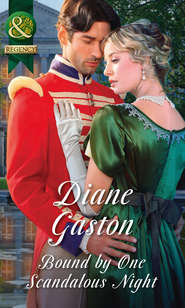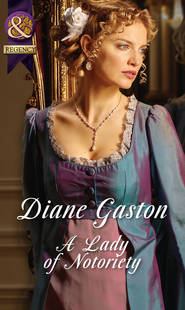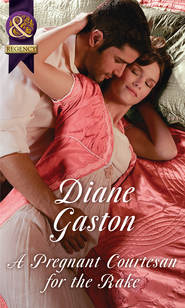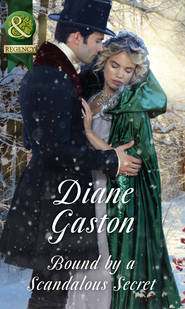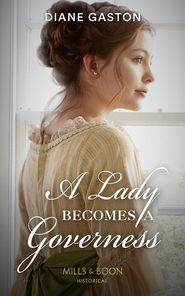По всем вопросам обращайтесь на: info@litportal.ru
(©) 2003-2024.
✖
Chivalrous Captain, Rebel Mistress
Настройки чтения
Размер шрифта
Высота строк
Поля
Marian rose. ‘She heard you, I expect, and thinks you meant now.’ She released Valour from her stall and the mare immediately found the captain, lowering her head to nuzzle his arm.
‘Ow, Valour, stop.’ He shuddered from the pain, but stroked Valour’s neck. ‘Nothing to fret over.’
Marian smiled. ‘She is trying to tend you.’
He returned her gaze. ‘I already have an excellent nurse.’
She could only hope she would be good enough to pull him through. Marian led Valour away. ‘I will feed her.’ She found the feed and Valour soon forgot about her master.
Marian glanced around the barn. The door was open, providing plenty of light and fresh air, but living with animals and wearing dirty clothes still assaulted the nostrils. She took a broom from against the wall and performed a task she had never done before in her life—she swept the barn.
‘What are you doing?’ The captain could not see her.
‘Sweeping out the dirty hay,’ she responded.
‘You should not have to perform such a task.’ He sounded breathless and disapproving.
It stung. She very much wanted him to admire her, to value the fact that she was not missish or helpless.
She swept over to where he could see her. ‘I prefer this work to the smell.’
‘I should be doing the task,’ he rasped.
Perhaps he merely felt guilty. That would certainly be like him.
‘It is a simple enough task,’ she remarked.
He looked up at her. ‘You do whatever needs to be done, do you not, Miss Pallant?’
She felt herself go warm all over, as if the sun had chosen to shine only on her. ‘As do you, Captain.’ She held his gaze for a special moment. How alike they were in some ways. ‘Your turn will come when you are better.’
He nodded and closed his eyes again.
Marian hummed as she finished the task, sweeping the dirty hay from the floor to the outside. Two chickens pecked at the soil around the hut. She glimpsed the farmer and his wife in the side yard sorting through the bundles they’d brought in the day before.
Their bounty from the dead.
Her good spirits fled, and she remembered that men had died in the battle, some in her arms.
Death had robbed her of almost everyone she cared about. Her parents. Her Indian amah. Her aunt. All she had left was her cousin Edwin and Domina, and she did not know if Domina had survived.
She glanced back at the captain, the light from the door shining on him. He would not die, she vowed, not as long as she drew breath. She turned back to see what else needed doing in the barn.
Marian was pitching fresh hay into the horse’s stall when the farmer walked in and glanced all around. ‘Wat is dit?’
She could guess what he asked. ‘I cleaned it.’
He raised his brows and tapped his head.
‘I know.’ She sighed. ‘You do not understand.’
But he looked pleased and she felt a surge of pride that her work had been appreciated. He smiled. ‘Brood?’
She almost laughed. ‘Brood. ‘ She nodded. Bread was to be her reward. ‘Thank you.’
He looked down at the captain and frowned. ‘Slaapt hij?’
‘Sleeping?’ Her smile turned wan. ‘Yes.’ A feverish sleep. She fished into her pocket and held out a coin to the peasant. She pulled at her dirty coat. ‘Clean clothes?’
He stared.
She repeated, this time pointing to the stains on the captain’s trousers, as well.
‘Ah.’ The man nodded vigorously.
A few minutes later he brought back a basket of bread and cheese and an armful of folded clothes.
‘Thank you,’ she cried.
After he left, she set the food aside for later and examined the clothes. There were two sets consisting of shirts, coats and trousers. One set was very large, for the captain; one smaller, for her. She held one of the shirts up to her nose and smelled the bitter odour of gunpowder.
The peasant had brought her plundered clothing. The large trousers were white, like the trousers of the French soldiers who had stormed the gate at Hougoumont. These were pristine, however, obviously tucked away in some poor Frenchman’s pack.
A wave of grief for the poor fellow washed over her. It seemed dishonourable to don his clothing and be glad of its cleanliness, but what choice did she have?
They would wear these garments only until she could wash and dry their own. And she would say a prayer for the poor men who died to clothe them even temporarily.
Marian carried the bucket to the well to draw clean water, which she brought back to bathe the captain as best she could. She supposed a lady ought to try to get the farmer to undress the captain, but she was pretending to be a boy.
She knelt beside him. ‘Captain, I have clean clothes for you, but first I must bathe you.’ He was already shirtless, so there was nothing to do but remove his trousers. It should be no more difficult to pull off his trousers than to undress a doll.
He opened his eyes. ‘Bathe?’
‘Yes. It will cool you, as well.’ She dipped the cloth in the water and wrung it out.
She started with his face, wiping off soot and dirt. Rinsing the cloth, she wiped his hair and rinsed again. She cleaned around his bandages, careful not to get them wet.
‘I should not let you …’ he murmured.
She made a face at him. ‘I know. I know. My reputation and all that is proper.’ She moved the cloth across his nipple and felt a strange surge of sensation inside her. She lifted the cloth, then rinsed it again, trying to regain composure. ‘I suspect if you were feeling better you would give me a lecture.’
A wan smile formed on his lips. ‘Indeed, I would.’
‘Would it not be ridiculous for me to leave you dirty in soiled clothing merely because I am an unmarried miss?’ Perhaps if she kept talking the fluttering inside her would cease. ‘It would be nonsensical. Much of what one must do to preserve one’s reputation is nonsensical, is it not?’
‘Nonsensical,’ he murmured.
‘Yes … like—like being alone with a man. A few minutes alone and one’s parents or guardian force a betrothal even if the gentleman and lady despise each other. Ridiculous.’







